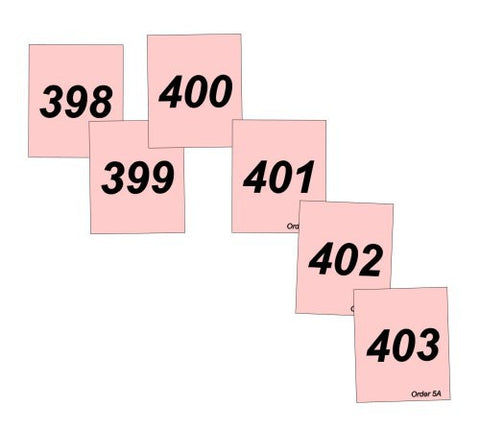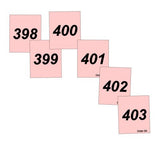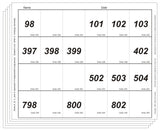Order Pink
- Sequencing three-digit numerals by increments of one
- Transitioning to the next decade or hundred
- For children in grades K-3
- Color-coded cardstock sequencing cards and organization labels
- Eight separate exercises with four separate sequences of six values each
Cards that can be manipulated to sequence three-digit numerals: sequencing three-digit numerals by increments of one, transitioning to the next decade or hundred, sequencing random three-digit numerals from least to greatest, organizational skills.
Color-coded cardstock sequencing cards (Lamination recommended for heavy use; cutting required.)
Recommended storage (not included): fifteen hardware drawers, boxes, or envelopes.
Free-response workpages; children write in missing numbers. (No special preparation required.) Recommended storage (not included): file
Scope and Sequence Chart (Click here)
The teacher's experience and the sequence of skills in the students' basic math program are the best guides in determining which skills should be introduced first. In general, the scope and sequence chart above can be used as a guide.
A number of sets for younger children are "color coded." Some teachers present all the levels with an exercise set, while others prefer to present all the blue (two-digit) exercises, progress to the pink (three-digit), and culminate with the green (four-digit).
Other skills such as Roman Numerals require no prerequisites other rhan an understanding of place value. Such exercises can be presented any time.
We Also Recommend




